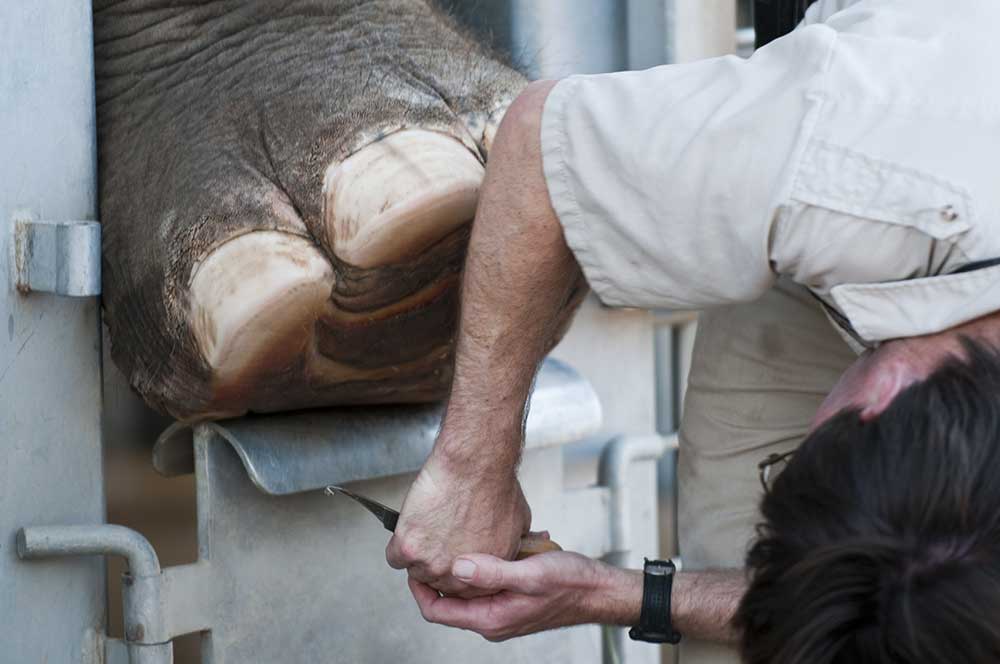Disclaimer: The information on our website is provided for general information purposes only. We make no representations or warranties of any kind, express or implied, about the completeness, accuracy, reliability, suitability or availability with respect to the website or the information contained on our website for any purpose. Any reliance on such information is therefore strictly at your own risk and we are not liable for any damages or losses arising out of or resulting from your reliance on any information contained on our website.
A zookeeper cares for exotic animals and ensures their habitat is safe and stimulating for animals. Ultimately, their responsibility is to care for animals and monitor their physical and mental health. Additionally, they also feed animals and ensure perform basic veterinary care. Watch a video to learn what a zookeeper does:
How to Become a Zookeeper
Though there is not a minimum educational requirement to become a zookeeper. However, it is advantageous to gain a bachelor’s degree in biology or zoology. There is also the potential to become a zookeeper with a lot of on-the-job experience. You can gain this by interning at a zoo, animal sanctuary, or animal rescue.
Along with experience or education, many employers require you to pass a background check to ensure the safety of their animals. The Smithsonian Institute for example, asks for candidates that can lift at least 50 pounds and “the work also requires extended periods of standing, walking, bending, and stooping.”
Job Description of a Zookeeper
A zookeeper performs many tasks any given day. Additionally, they have multiple animals to check on and must evaluate their health often. They would also ensure their animals were getting fed appropriately and were given the appropriate medications. Physical wellness is important, but an animals mental wellness is just as important. Zookeepers would make sure animals habitat is safe while being stimulating for the animal and allows them to use their natural instincts to keep them entertained.
The size of the zoo may dictate how many takes a zookeeper performs. Zookeepers may need to clean an animal’s living quarters which may vary between a daily living habitat and where they sleep for the night. They could also find themselves repairing equipment.
Free Student and Teacher Resources
If you’re interested in learning more about animals, the Smithsonian’s National Zoo and Conservation Biology Institute provides a virtual way to meet the animals. They also have animal webcams on their site allowing you to watch the animals live. The Saint Louis Zoo (link opens a new tab) has a page dedicated to zookeeping and how to become a zookeeper. This site offers a great deal of information whether you are in elementary school, high school, college, or ready to find a job.
Zookeeper Career Video Transcript
First thing in the morning we go around and check the animals administer medications if we need to, just make sure everyone’s ok and then we start cleaning yards and preparing diets for the cats and we prepare enrichment for the animals before they go out for the day. We’ll go in, and we’ll set up the yards in the morning before we let them out. We’ll put food out to the different parts of the habitat.
We like to encourage the animals to search for the food and sort of stimulate their natural instincts, their natural behaviors of going out, sniffing out their food. The really great thing about sloth bears, especially for the cubs, is that even though they’re in the same enclosure every night as long as you change the structures of the logs or you put a different enrichment item into the stall it’s almost like giving them a brand new habitat every night.
Training to Become a Zookeeper
The training is done basically to check every part of their bodies every day without being able to actually touch them. We use training for medical reasons only, there are no special tricks or anything that we ask them for. If we do this they open their mouth so we can check their teeth. They are trained for voluntary injections, we’re also working on training them for blood draws from their tail. So anything we can do voluntarily with the animals without having to anesthetize them is something that we work for.
The interactions on a daily basis that you have with your animals and there is a relationship there. A lot of people would just see, oh it’s a lion or a tiger, but these lions know us, they trust us, they train for us, and for us it’s just like having a pet at home. You know we cry when they are sick and are happy when they have babies and so just being a part of their lives every day and being responsible for their care is the best part for me.
Particularly if they’re interested in animal work, I would suggest just starting with dog walking or pet sitting in their neighborhood. That’s a really good way to get into the industry at a very early age and then when you get older you can become a keeper aid at the zoo and actually learn what it takes to be a zookeeper and sort of the care of exotic animals. Visit the National Zoo Education page for more information.
Article Citations
Bureau of Labor Statistics, U.S. Department of Labor, Occupational Outlook Handbook, Animal Care and Service Workers.
National Center for O*NET Development. 39-2021.00. O*NET OnLine.
The career video is in the Public Domain on USA.gov, an interagency product administered by USAGov, a division of the U.S. General Services Administration’s Technology Transformation Service.

